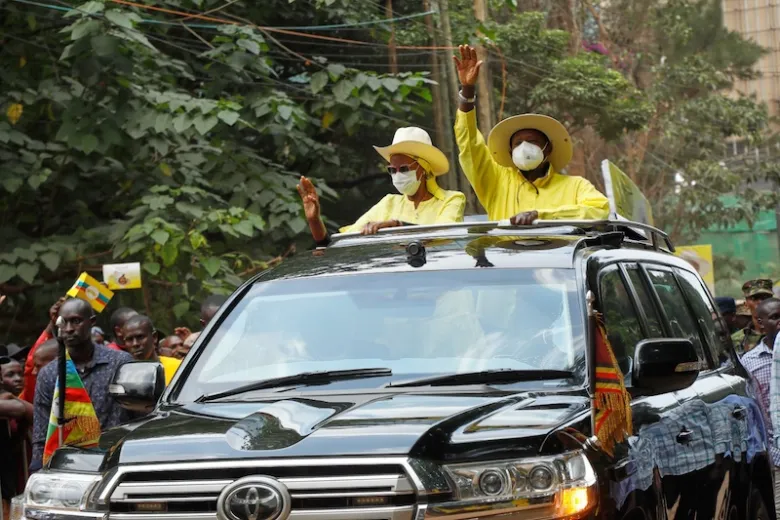
President Yoweri Kaguta Museveni has taken another step towards extending his long-standing leadership. On 23 September 2025, the Electoral Commission formally accepted his nomination for the 2026 presidential elections, backed by more than 2 million signatures from supporters. At 81 years old and in power since 1986, Museveni’s continued bid is stirring debates over democracy, the youth vote, political competition, and the future direction of Uganda.
Background: How We Got Here
- The constitutional amendments in 2017 removed presidential age limits, paving the way for leaders over previous thresholds to run.
- Museveni has run Uganda for decades under the National Resistance Movement (NRM), often facing criticism for suppressing political dissent and complicating free political space.
- His main challenger for 2026 is expected to be Bobi Wine (Robert Kyagulanyi), who remains a prominent opposition figure especially popular among urban youth. Reuters+1
What the Nomination Means
1. Political Implications
- Confirms that Museveni will be on the ballot: no more uncertainty.
- Likely to intensify the rivalry with opposition, especially given prior election tensions.
- Could trigger more political mobilization by young people; they remain a key voting bloc.
2. Democratic Questions & Criticism
- Questions persist about fairness of the electoral process. Accusations of suppression and limits on citizen freedoms may resurface.
- Observers will be watching for how the Electoral Commission handles nominations of opposition figures, campaign regulations, and media access.
3. Policy & Governance Impacts
- Museveni will likely continue emphasizing infrastructure, healthcare, education, and attracting foreign investment, as these are his claimed areas of achievement.
- There might be increased scrutiny on how public resources are used in campaign periods.
What Ugandans Are Saying
- Supporters argue his experience and track record make him the best choice for continuity and stability.
- Critics argue it’s time for new leadership, saying decades in power cloud reform and fresh ideas.
- Youth voices, especially in urban areas, are seen as pivotal either to defend the status quo or demand change.
The formal nomination of President Museveni for the 2026 elections is a major marker in Uganda’s political timeline. Whether this leads to a competitive election or increased tensions will depend much on how institutions perform, how opposition space is managed, and whether key issues like corruption, human rights, and governance reforms are addressed.
